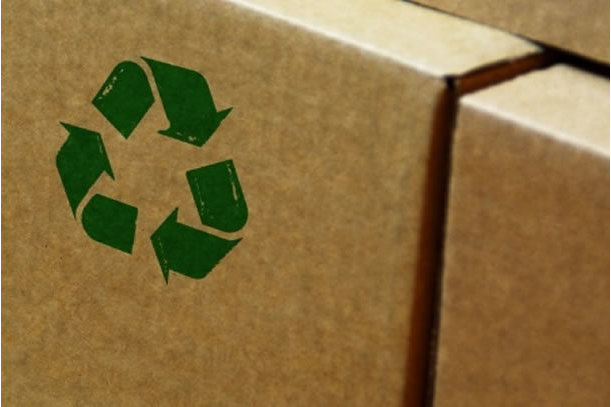Latest News
Companies embrace biodegradable packaging to achieve sustainability goals

News Highlight
Amidst a raft of new regulations and environmental laws, consumer-facing companies are adopting a slew of measures to switch to green packaging solutions, says GlobalData.
Amidst a raft of new regulations and environmental laws, consumer-facing companies are adopting a slew of measures to switch to green packaging solutions, says GlobalData, a leading data and analytics company. According to the company, the ripple effect is quite evident as clear labelling campaigns to differentiate between composability and biodegradability by some of the key manufacturers are pushing the other companies to follow suit and achieve sustainability goals.
Composting is the natural process of recycling organic matter, such as leaves and food scraps, into a valuable fertilizer that can enrich soil and plants, while biodegradable materials can be decomposed by bacteria or other living organisms and thereby avoiding pollution.
“As sustainability has emerged as a mainstream concern, more brands are switching to ‘biodegradable’ packaging,” Shagun Sachdeva, Project Manager of Disruptive Tech at GlobalData, said in a note sent to Financial Nigeria. “Subsequently, 2023 will be the year of the green packaging revolution where renewably sourced materials will continue to remain in the spotlight and will be a unique selling point for brands to edge out the competition.”
Rahul Kumar Singh, Senior Analyst of Disruptive Tech at GlobalData, also noted that COVID-19 accelerated the need for smart and sustainable packaging driven by the exponential growth in eCommerce, adding that this is compelling manufacturers and operators to remain focused on cost-effective, optimised, and sustainable eCommerce packaging solutions.
According to GlobalData’s 2022 Q3 Consumer Survey, which covered 42 countries and over 21,000 participants, around 45 percent of global consumers look for information on carbon footprint and recyclability when it comes to product packaging. At the same time, 69 percent of global consumers consider biodegradable/compostable to be a crucial factor in product packaging. Of all the regions, Asia-Pacific was the key region to be more concerned about the biodegradability factor in product packaging.
GlobalData’s FutureTech Series report, “Environment Sustainability in Packaging: Biodegradable Packaging,” highlights various disruptive forces in the packaging industry and points out how companies are proactively making commitments to improve sustainability.
Kilara Capital, an Australia-based investment management firm, invested in Grounded Packaging, a supplier of sustainable packaging products, in December 2022. Nfinite Nanotechnology was among Amcor’s announced first batch of recipients for Amcor Lift-Off seed funding – an initiative focused on making the future of packaging more sustainable, in September 2022.
S.Lab, a Ukraine-based manufacturer of biodegradable packaging and decor items from hemp and mushrooms, secured $90,000 in venture funds in February 2022.
Singh said major companies within the packaging industry are not only actively seeking ways to reduce their environmental footprint by investing and formulating deals but also looking into future innovations.
Other examples of companies innovating on sustainable packaging include TIPA, an Israel-based composable packaging firm, which partnered with Apiece Apart, a US-based online clothing store, to develop a circular fashion line in December 2022. The company also published a patent for a multi-layered biodegradable packaging sheet using epsilon-caprolactone or polylactic acid as an inner layer and a polybutyl succinate combination as the outer layer.
Huhtamaki, a Finland-based consumer packaging company, introduced a recyclable ice cream packaging solution in November 2022. The company was also granted a patent for a highly recyclable, biodegradable packaging sheet for foods and farm produce suitable for printing and coating.
“Despite a strong push towards sustainable packaging solutions, the industrial use of biodegradable packaging is still in its infancy and will take time to scale up. Effectiveness, durability, and cost being the key challenges at present, it will be interesting to see how strategically companies can put their plan into action and do their part in securing profits and providing a safer future for the planet, all at the same time,” Singh concluded.
Related News
Latest Blogs
- What Ould Tah’s tenure at BADEA reveals about his AfDB candidacy
- Implementation strategy crucial for the success of 12-4 education policy
- A senator’s suspension threatens the right of representation
- Tinubu’s promising revolution in infrastructure development
- Has Tinubu’s economic reform started working?
Most Popular News
- Artificial intelligence can help to reduce youth unemployment in Africa – ...
- Nigeria records $6.83 billion balance of payments surplus in 2024
- Tinubu appoints new Board Chair, Group CEO for NNPC Limited
- Tariffs stir inflation fears in US but offer targeted industry gains ...
- Soaring civil unrest worries companies and insurers, says Allianz
- CBN net reserve hits $23.1 billion, the highest in three years









